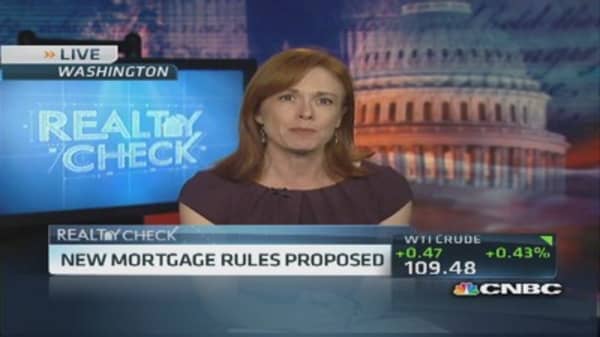More than three million U.S. borrowers have risen above water on their mortgages so far this year, thanks to swift home price appreciation, according to a new report from online real estate company Zillow.
The negative home equity rate fell in the second quarter of this year, the fifth straight quarterly drop, but it is still alarmingly high and continues to hamper the housing recovery.
Currently, 23.8 percent of homeowners with a mortgage, or approximately 12.2 million, owe more than their homes are worth, down from 15.3 million one year ago, according to the report. Some, however, are still so far underwater that even with fast-rising prices, it will take years for them to see any home equity.
(Read more: Home sales suffer on higher rates: Realtors)
"Widespread rising home values during the past year have helped chip away at negative equity nationwide, helping many homeowners who were only modestly underwater to come up for air. For those homeowners who are deeply underwater, though, there is still a long row to hoe," said Zillow Chief Economist Dr. Stan Humphries in a release.
(Read more: He's not buying a house—why is Obama on Zillow?)





